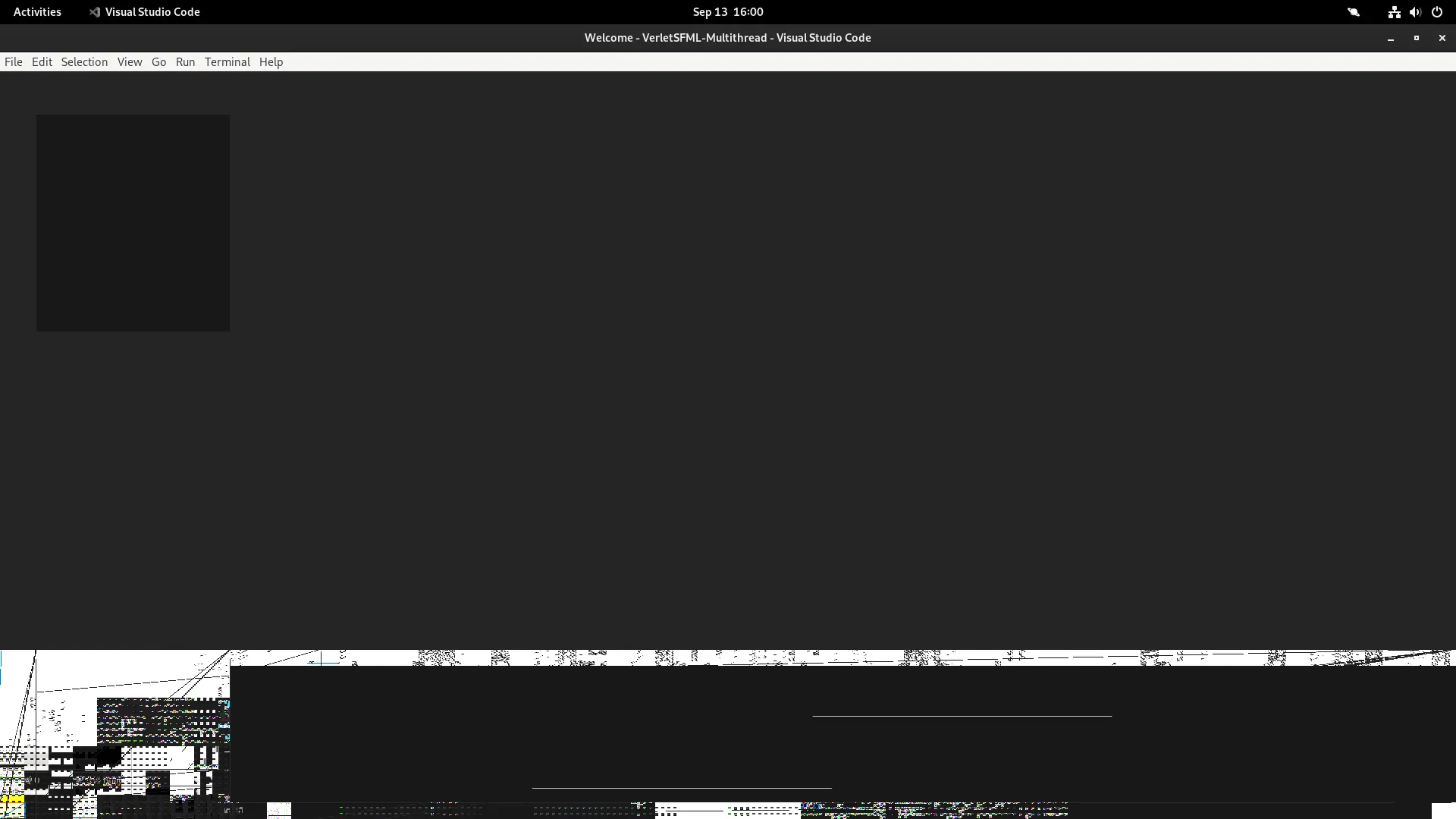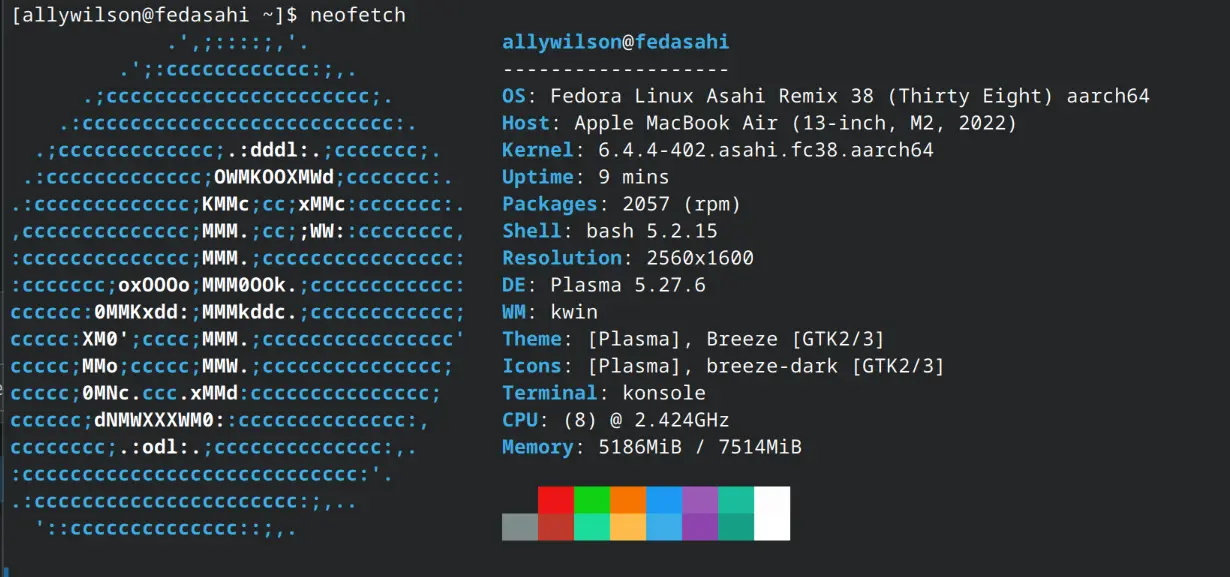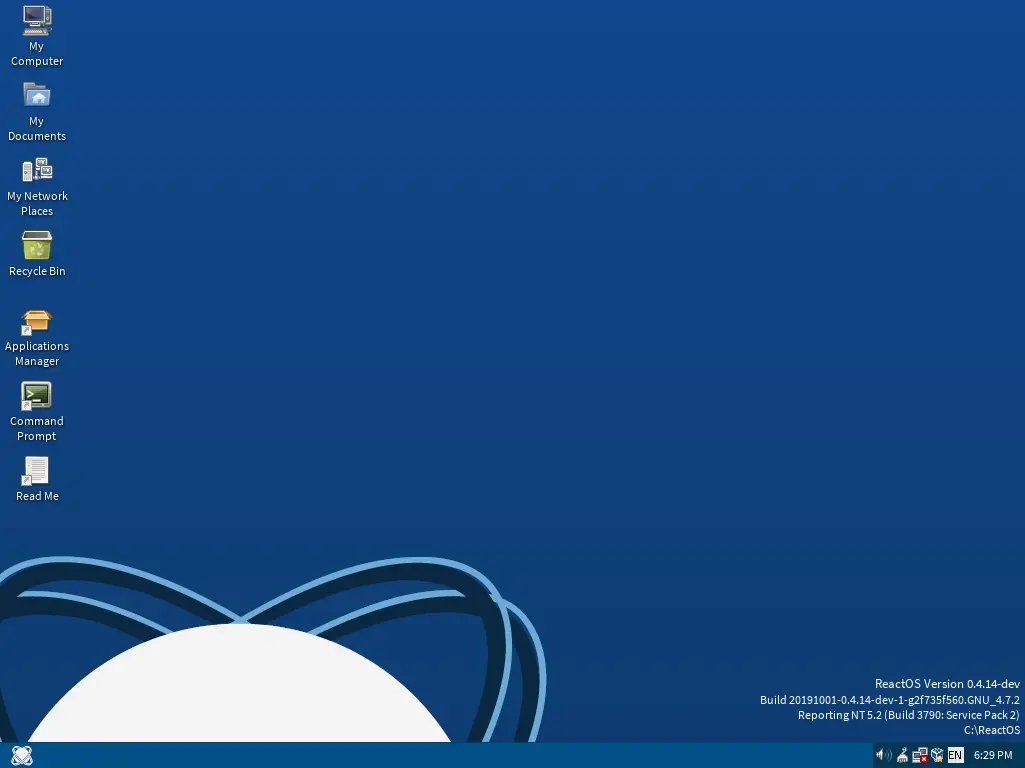
Will it be Slowroll or Linarite -- or nothing at all? Programmers are conflicted about where the venerable Linux distro should go from here.


Will it be Slowroll or Linarite -- or nothing at all? Programmers are conflicted about where the venerable Linux distro should go from here.

cross-posted from: https://kbin.social/m/linux/t/468935
Will it be Slowroll or Linarite -- or nothing at all? Programmers are conflicted about where the venerable Linux distro should go from here.
Weird artifacting in Visual Studio Code


I have already tried to reinstall, didn't work. I have the RX 6600. I'm on Fedora. Already ran sudo dnf update and restarted multiple times. Could my GPU be dying? The GPU is a Powercolor branded one and basically the cheapest RX 6600 that my local shop had available so its a bit sketchy. But it has worked pretty well so far.
What’s your favourite Desktop setup?
Personally I’m a fan of KDE Plasma.
what's the appeal of Linux for the average desktop user?
I'm going to very carefully poke the hornet's nest here and ask this basic question that I never really explicitly formulated. It seems apt here on Lemmy in particular because people take as a given the superiority of Linux as the starting point of conversations involved computers generally.
I'm not here to refute this, but I am thinking I should interrogate it a bit more. I'll start with an "average" user, to which I'll have to give some sort of definition.
Imagine somebody with a low to moderate concern about privacy, more than none, but not much more and will happily trade it for useful or enjoyable services. Imagine the use case of a desktop computer for this type of person is productivity software they use at work/school, and occasionally for their own purposes too because they're familiar with it. They also like to watch movies, browse the web, and communicate with friends and family using popular free software packages. Security isn't much of a worry for them, but they do eng
OpenELA - SuSe, Oracle, CiQ join their forces to keep EL open and accessible
IBM/RedHat obviously missing from the member list.
EDIT: CiQ is also a member of resf.
R on Debian
I am thinking of moving to linux (Debian seemed to suite me) from Windows. I have used lubuntu and and ubuntu somewhat before, but their use has been very limited.
My main use would be to do statistical programming on R and Python. Does Debian have all the CRAN packages I can install on Windows? What about packages on Python? Does Debian suite me at all or should I look elsewhere?
Fedora Asahi on Macbook Air M2


The installation was really smooth, very impressed. Hope this becomes my daily driver now.
Having problems with the linux-firmware
undefined
debconf: unable to initialize frontend: Dialog debconf: (Dialog frontend requires a screen at least 13 lines tall and 31 columns wide.) debconf: falling back to frontend: Readline Setting up linux-firmware (20230629.gitee91452d-0ubuntu1+system76~1689594960~22.04~9d563bf) ... update-initramfs: Generating /boot/initrd.img-6.2.6-76060206-generic cp: cannot stat '/lib/klibc-*.so': No such file or directory E: /usr/share/initramfs-tools/hooks/klibc-utils failed with return 1. update-initramfs: failed for /boot/initrd.img-6.2.6-76060206-generic with 1. dpkg: error processing package linux-firmware (--configure): installed linux-firmware package post-installation script subprocess returned error exit status 1 Errors were encountered while processing: linux-firmware E: Sub-process /usr/bin/dpkg returned an error code (1)
This happens when trying to update things in apt in PopOS. Tell me if more info is needed. I hope I posted to the right community.>>>
Audio production oriented distribution recommendations?
Any recommendations for easy-to-use Linux distribution for audio production? I might try PipeWire installation too if it's stable and compatible enough.
I've been using debian based distros for 10+ years for now: started with Ubuntus and the last half I've spent with Debian 9/10 but I've become tired of fixing things. I've considered MX Linux and LMDE. I have some experience with them already (although haven't tried Mint's Debian variant yet).
For years I've been bridging JACK and pulseaudio, but it's never been optimal, hence considering PipeWire. I read somewhere that wire plumber package in MX is broken. Not sure about the current state. I probably need to know things like these beforehand when installing a distro or another.
Arch Linux on latest Framework laptop
This article sums up why and how I run Arch Linux on my new Framework Laptop 13, which I received on the 3rd of this month.
I was thinking about getting a framework laptop myself actually. Seems to be working very well under arch.
React os is alive!

ReactOS is a free, opensource reimplementation of windows


Linus Torvalds has announced the release of the Linux kernel 6.4 and with it, lots and lots of new features and fixes.

Word of Warning: Backups
After a single APT command gone wrong made my Debian installation unusable, I decided to reinstall Linux. I tried to back up everything to my external hard drive, but it kept unmounting, so I elected to use Filen (a FOSS cloud storage provider) instead.
It was only after installing openSUSE Tumbleweed with KDE Plasma that I realised I hadn't actually synchronised the folder I had moved my backup to; meaning I have lost everything but a single Minecraft world (which I had backed up to a Compact Flash card in February).
Tl;dr: Double check your backups, and use physical storage whenever possible.

There are Linux laptops, Linux mini PCs and Linux Phones. What about Linux-based tablets? What if you want to use a real Linux on a tab? Here are your options.

Liftoff! - 🐒 A mobile client for Lemmy (Android/iOS/Windows/Linux)

🐒 A mobile client for lemmy. Contribute to liftoff-app/liftoff development by creating an account on GitHub.

PSA: Upgrade your LUKS PBKDF to Argon2id!
TIL the French government may have broken encryption on a LUKS-encrypted laptop with a "greater than 20 character" password in April 2023.
When upgrading TAILS today, I saw their announcement changing LUKS from PBKDF2 to Argon2id.
The release announcement above has some interesting back-of-the-envelope calculations for the wall-time required to crack a master key from a LUKS keyslot with PBKDF2 vs Argon2id.
And they also link to Matthew Garrett's article, which describes how to manually upgrade your (non-TAILS) LUKS header to Argon2id.
MOSH - security?
How do people here feel about mosh to the wide internet? We provide SSH, and use both normal secure passwords and duo for all logins. We've had a few more inquiries about using mosh recently, and looking at it, the big concerns I'd have are potentially the firewall rules (is it outgoing or incoming high port?) and the long lasting authentication across IPs and network connections. On unmanaged collaborator or partner devices this seems like a kind of hole if the device is compromised or stolen, where the session can live for "a long time".
However, I tend to believe them that their AES session keys make it pretty unlikely to be hijacked just over the net. Is there any consensus?
Any recommendations for a tablet with a Linux OS out of the box?
Was thinking about trading in my gaming laptop and opting for a tablet to be more mobile. Any Linux tablets out there? Or would it be better just to by like a Surface and install Linux that way? TIA